Understanding the costs of renting in Dubai: A guide for Thai expats
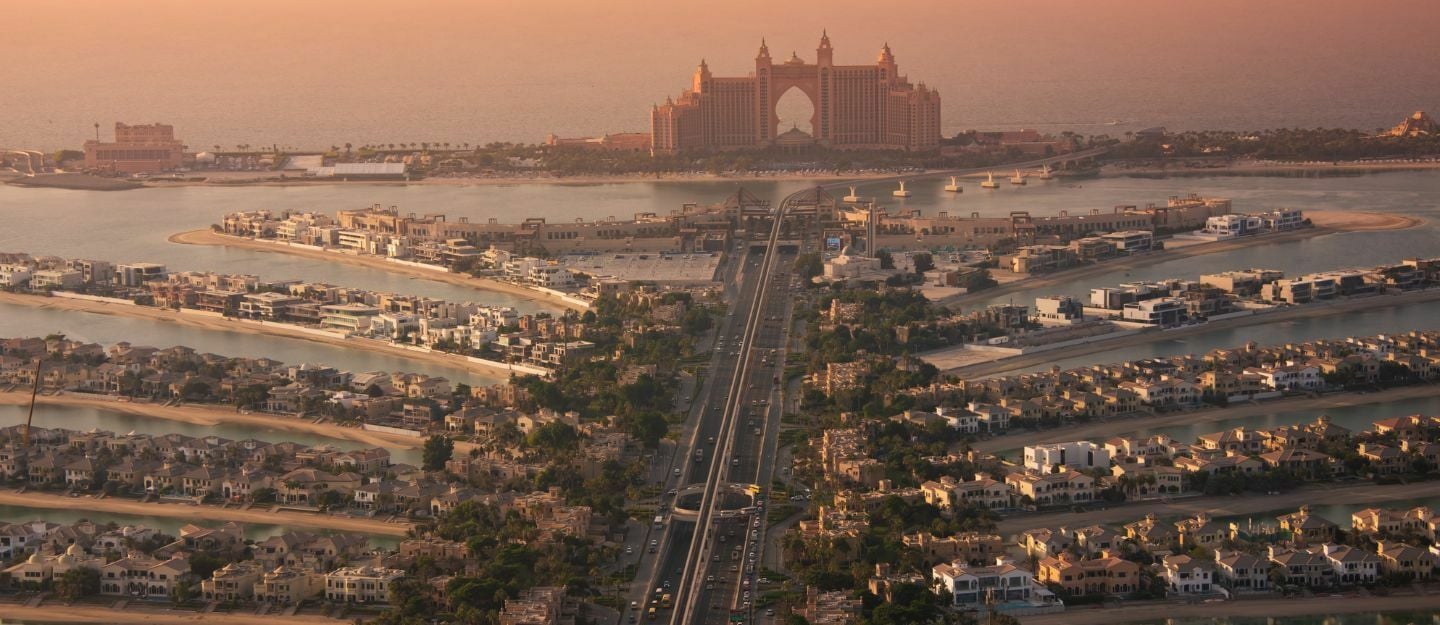
Particularly for Thai expats who might not be familiar with the local rental market, renting a property in Dubai can provide both an exciting prospect and a challenging process. Dubai presents a wide spectrum of properties, from opulent villas to trendy apartments, but it’s important to grasp the whole range of expenses required outside just the monthly rent. The article aims to reveal the hidden costs of renting in Dubai, thereby enabling you to make wise decisions and properly manage your finances.
Hidden Costs of Renting in Dubai
Many renters in Dubai just pay attention to the rent itself when thinking about living there. However, various extra costs can have a big influence on your budget. The hidden expenses you should know about are broken out here:
- Agency Fees: If you decide to work with a real estate agency, you need to budget an agency charge, usually approximately 5% of your yearly rent. The agency and specific agreement carried out will affect this cost.
- Ejari Registration: All tenancy arrangements in Dubai require Ejari Registration, which is regulated by the government. Usually, the expense consists of:
- AED 100 (THB 900) plus VAT for registration
- AED 10 (THB 90) innovation fee
- AED 10 (THB 90) knowledge fee
- Housing Fee: This fee is 5% of your annual rent and is billed monthly by the Dubai Electricity and Water Authority (DEWA).
- Security Deposit: Usually, a refundable security deposit is needed; this is:
- 5% for unfurnished properties
- 10% for furnished properties
- Alternatively, it could equal one month’s rent.
- DEWA Deposit: You must pay a refundable deposit to set up your water and electricity connections:
- AED 2,000 (THB 18,011) for apartments
- AED 4,000 (THB 36,023) for villas
- District Cooling Charges: Many apartment buildings have district cooling systems. This service may be subject to additional costs, if applicable.
- Moving Costs: Hiring movers might cost anywhere from AED 1,500 to AED 2,500 (THB 13,508 to THB 22,514) depending on the scope of your relocation and related services.
Estimating the Total Cost of Renting
Let’s use an example to help understand these expenses. If you rent a one-bedroom apartment in Dubai Marina for a yearly cost of AED 54,000 (THB 486,316):
- Monthly Rent Payment: Quarterly payment would be AED 13,500 (THB 121,579).
- Agency Fee (assuming 3%): AED 1,620 (THB 14,589).
- Ejari Registration Fee: Approximately AED 219 (THB 1,972).
- Security Deposit (one month’s rent): AED 4,500 (THB 40,526).
- DEWA Deposit: AED 2,000 (THB 18,011).
- Moving Costs: Estimated at AED 2,000 (THB 18,011).
Including these expenses leads to an initial outlay of about AED 24,839 (THB 223,696) before even starting to live in your new house. This figure underlines the need for budgeting in line with hidden expenses since they may accumulate quickly.
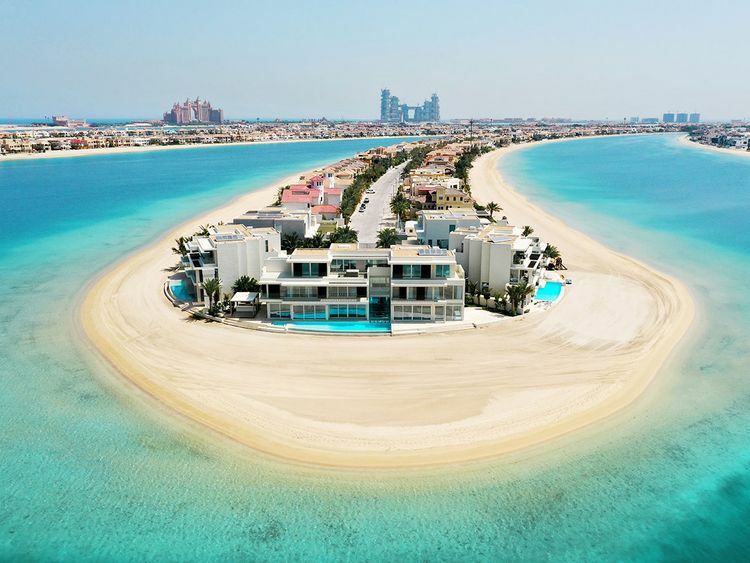
Additional Costs When Renewing Your Tenancy Contract
When the time comes to renew your lease, you have further expenses to consider:
- Maintenance Fees: Although they may not be obvious right away, maintenance fees cover repairs or upkeep needed either before or during your tenancy.
- Rent Increases: Be ready for possible rent increases at renewal; landlords could raise rents depending on the condition of the market.
- Agency Fees on Renewal: Should you contact an agent once more during renewal, you should expect to pay another agency fee ranging from 5% to as high as 10% depending on whether residential or commercial property.
- Ejari Renewal Fee: This is typically around AED 155 (THB 1,395) (excluding VAT).
Popular Areas for Thai Expats in Dubai
Several areas of Dubai stand out to Thai expats seeking a place to rent because of the affordability, facilities, and sense of community they provide. We’ve included some of the well-known locations together with insights including average yearly rentals from Bayut, a resourceful property portal in UAE. You can find relevant listings to rent apartments in Dubai on Bayut along with several helpful features to compare and shortlist your ideal property. Let’s have a look at the top neighbourhoods:
-
Deira
Among Dubai’s oldest neighbourhoods, Deira presents a vivid blend of history and culture. Its busy markets—the Gold Souk and Spice Souk—offer a distinctive shopping experience. Deira is great for anyone who values a vibrant environment with easy access to public transit and basic conveniences.
Average Annual Rent:
- Studio: AED 30,000 (THB 270,175)
- One-bedroom: AED 51,000 (THB 459,298)
- Two-bedroom: AED 79,000 (THB 711,462)
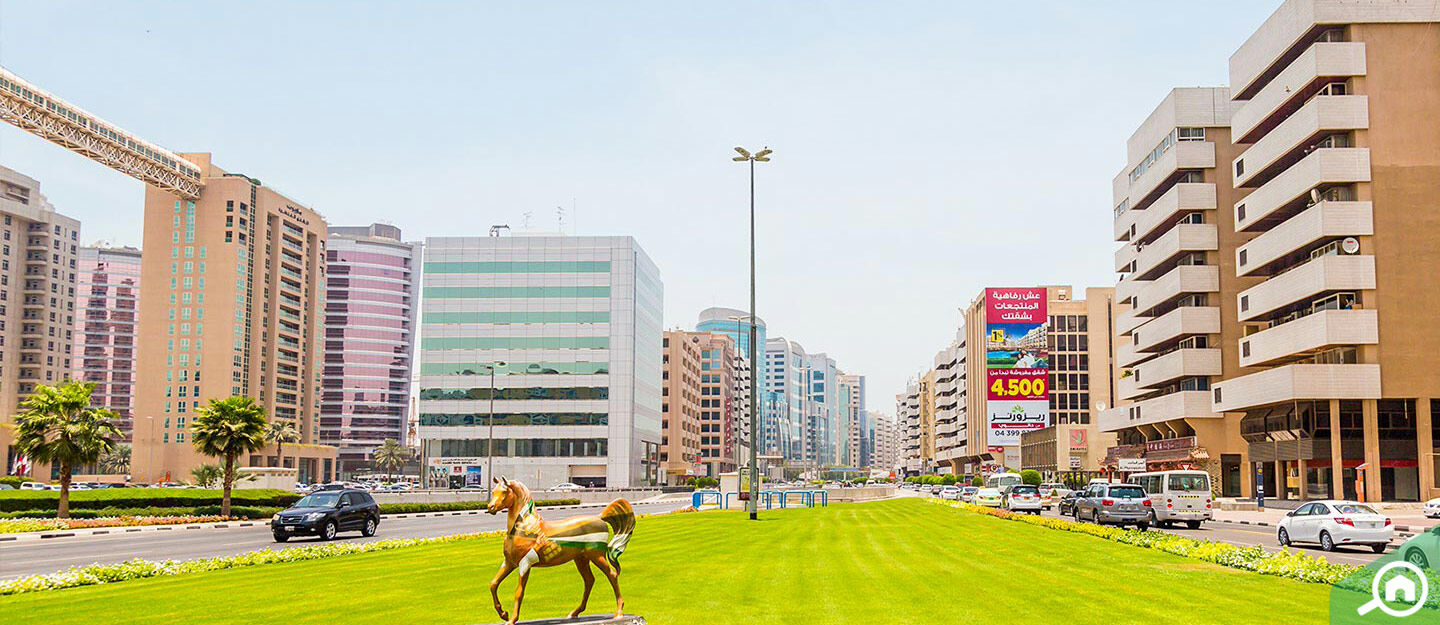
-
Al Nahda
Al Nahda’s family-friendly surroundings and low cost have made it rather popular among foreigners. It has everything a resident may want, including parks, schools, and retail centers. With its proximity to both Dubai and Sharjah, Al Nahda is convenient for individuals working in either emirate.
Average Annual Rent:
- Studio: AED 41,000 (THB 369,239)
- One-bedroom: AED 46,000 (THB 414,269)
- Two-bedroom: AED 59,000 (THB 531,345)
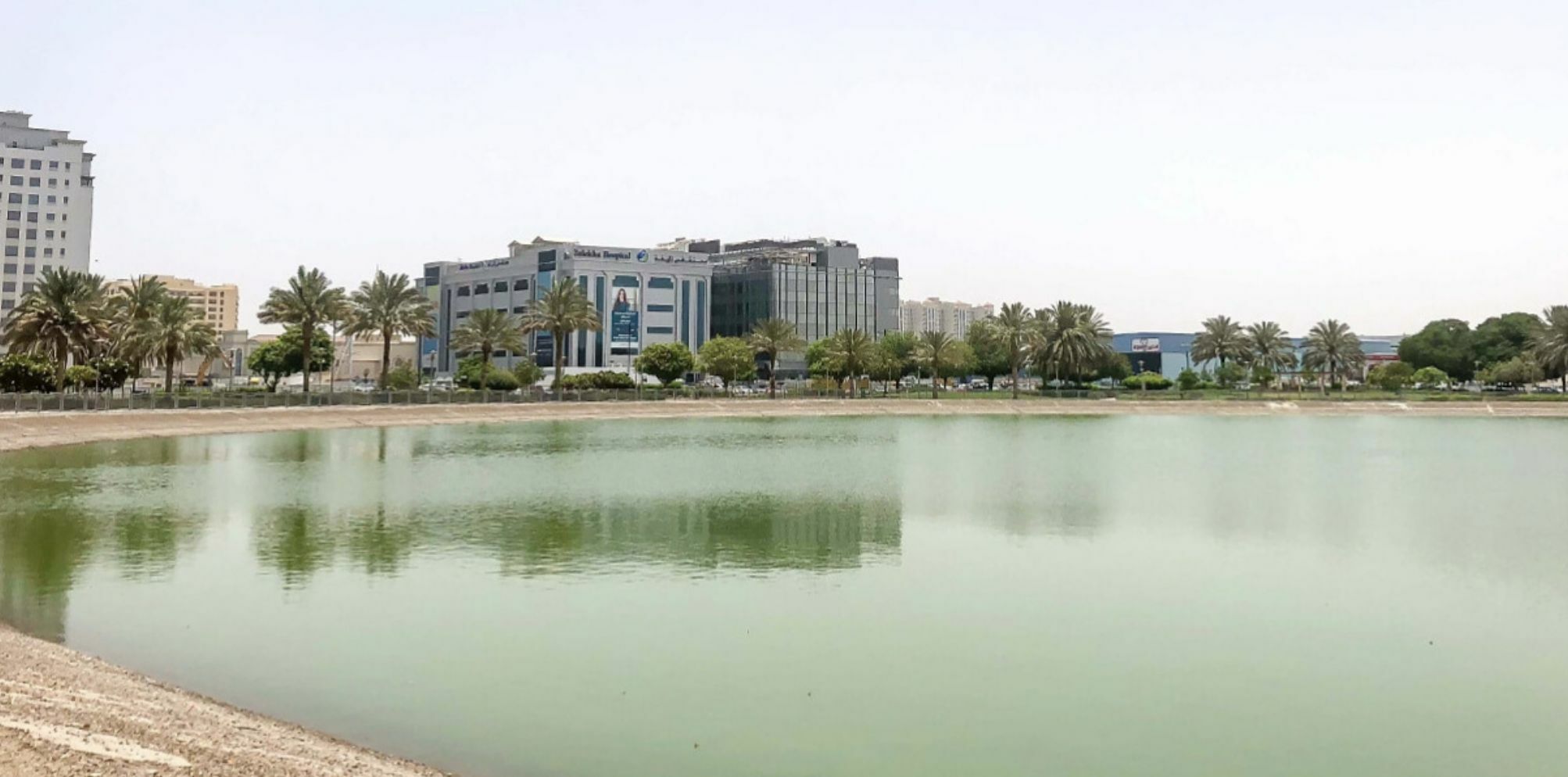
-
Jumeirah Village Circle (JVC)
JVC is renowned for its family-friendly ambiance and community-focused design. The area has parks, schools, and a variety of retail options, as well as easy access to major roads. If you’re a family searching for affordable, roomy housing, JVC is a great option.
Average Annual Rent:
- Studio: AED 51,000 (THB 459,298)
- One-bedroom: AED 74,000 (THB 666,433)
- Two-bedroom: AED 109,000 (THB 981,638)
Disclaimer: Dubai rental prices vary depending on the size of the property, facilities, and market conditions. Always do plenty of research before deciding.
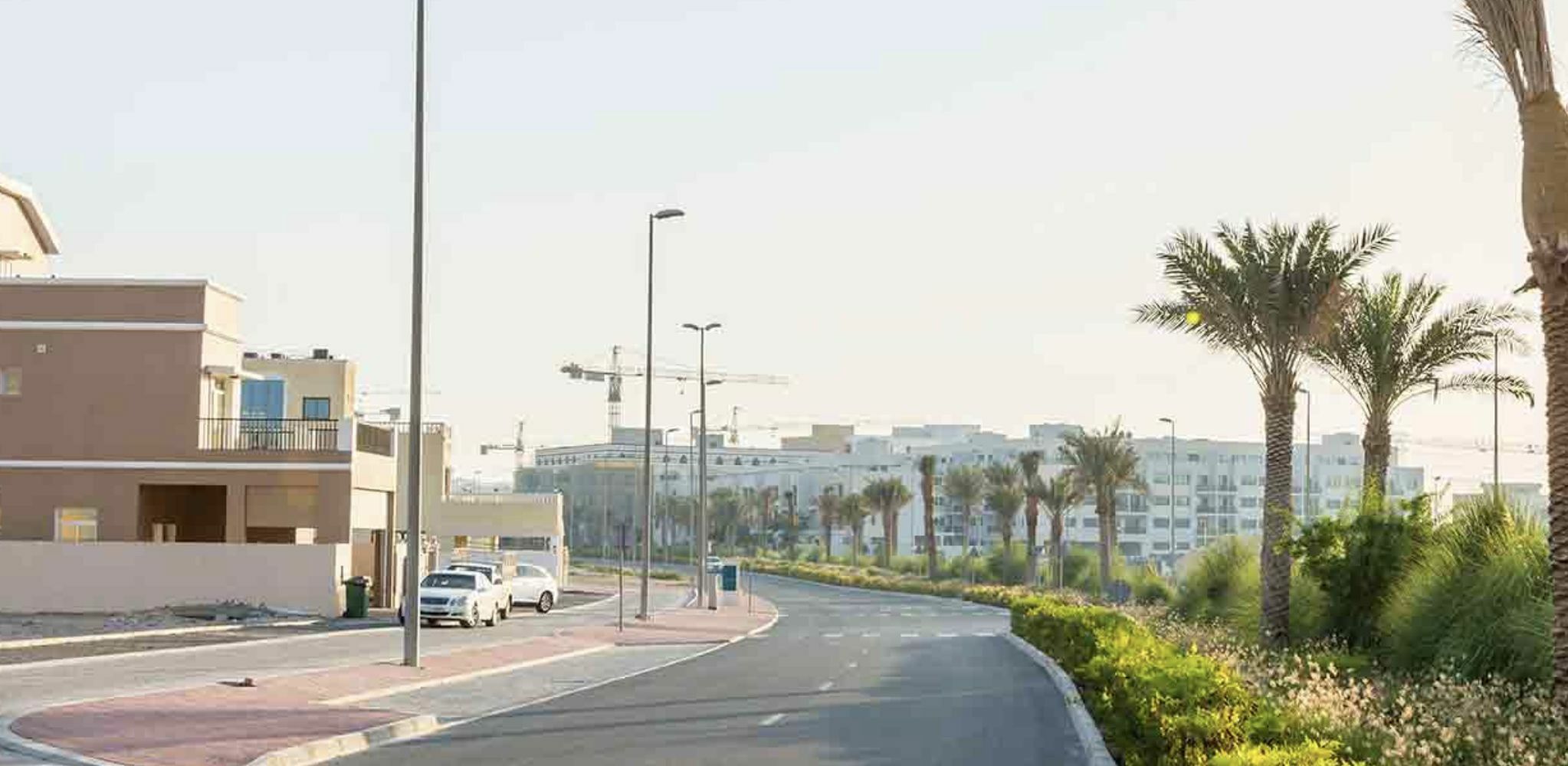
Thai expats wishing to live in Dubai must first grasp the whole extent of renting costs in this dynamic city. Whether you have lived in Dubai for years or are fresh here, spending some time to understand these features will eventually result in a more fulfilling rental experience. Knowing this now will help you negotiate the rental market with confidence and enjoy all that life in Dubai has to offer.
Frequently Asked Questions
Q1. What is the typical duration of rental contracts in Dubai?
A: Usually, Dubai’s rental contracts run for one year. Depending on the property and market conditions, some landlords might, however, provide shorter leases, say six months or even three months.
Q2. Are utilities included in the rent, or do I need to pay them separately?
A: The rent does not cover utilities such as power and water. Tenants are in charge of independently paying the bills and setting their utility accounts with the Dubai Electricity and Water Authority (DEWA). Tenants should also be advised of any district cooling costs, if relevant.
Q3. Can I negotiate the rent or terms of my lease?
A: Negotiating rent and lease terms is typical in Dubai’s rental market. Demand and market conditions will determine whether or not landlords are receptive to discussions; particularly if you have a clean rental record or are ready to sign a longer lease. Always approach discussions politely and be ready to offer justifications for your needs.
Latest Thailand News
Follow The Thaiger on Google News:


























